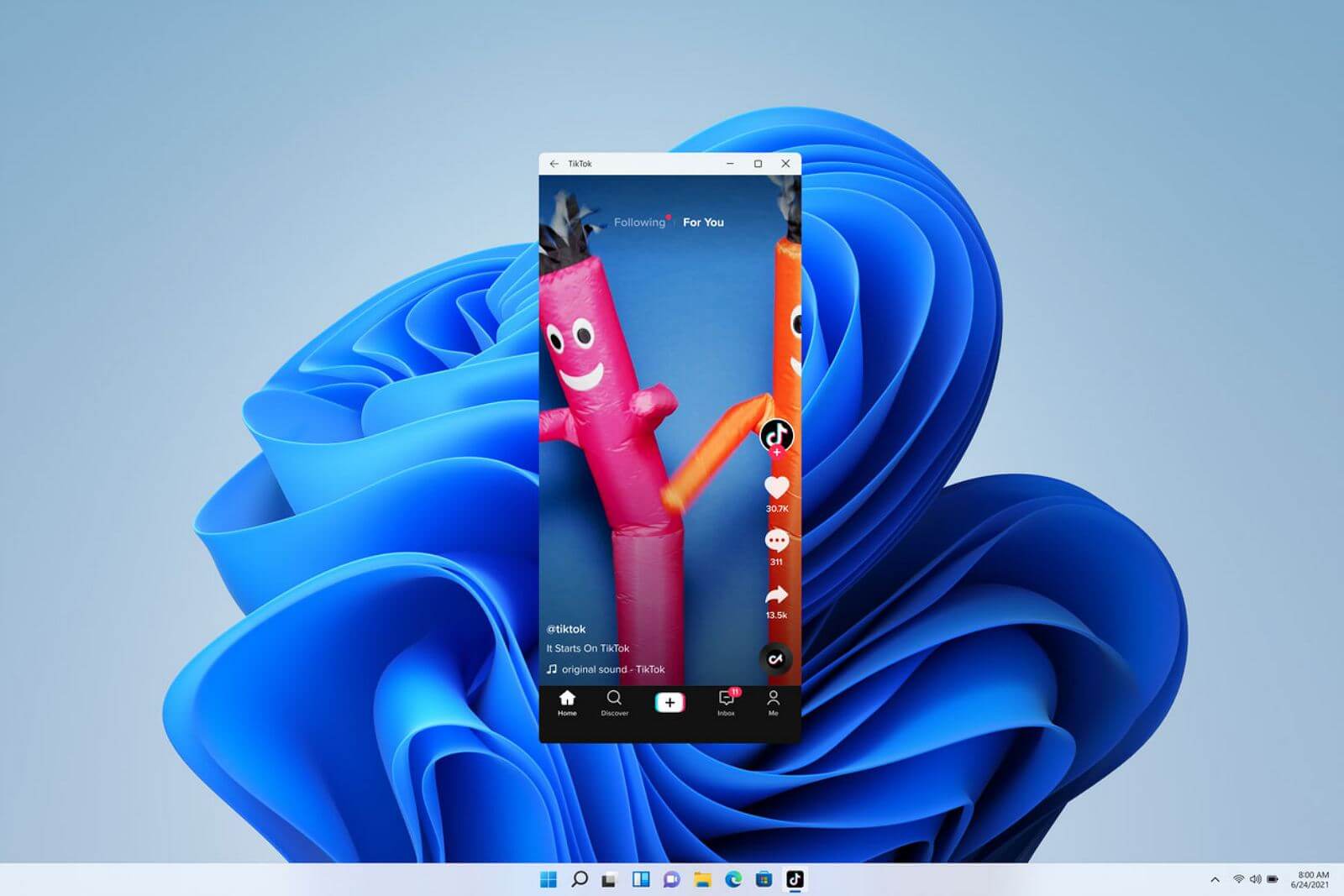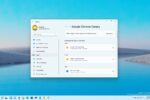- Windows 11 will include support to run Android apps.
- Microsoft is partnering with Amazon and Intel to the Amazon Appstore and Intel Bridge technology to bring the apps.
- A Windows Subsystem for Android will be available to run the apps.
- Android apps will work on computers using Intel, AMD, and ARM CPUs.
- Windows 11 will include the ability to sideload Android apps.
In addition to the extensive UI redesign and other new features, Windows 11’s support for Android apps may be the biggest surprise. You read properly, yes. The Android apps you use on your Android phone, such as TikTok, Instagram, Snapchat, and others, will be supported by the upcoming OS version. Even more intriguing is the fact that the apps will function on systems with Qualcomm, AMD, or Intel processors.
However, because a lot of things need to happen in the background for this to happen, the implementation is not that easy. To begin with, Microsoft had to collaborate with Amazon and Intel in order to port Android apps to Windows. Although Intel’s Bridge technology will be needed to run the apps on AMD or ARM devices, Amazon will supply the software through the Amazon Appstore.
Furthermore, Windows 11 will receive a Windows Subsystem for Android (WSA) (via ZDNet) to give the Android Open Source Project (AOSP) a virtual environment in which to execute Android apps without requiring support for Google Play Services.
Though additional apps may be added to the compatibility list in the future, not all Android apps from the Amazon store will operate on Windows 11 at least not during the feature’s initial release.
Installing Android apps in Windows 11
The process of downloading and installing the apps comes next. It looks like you must first download and install the Amazon Appstore and log in with your Amazon account, however this is still unclear. This will allow you to download and run Android apps on Windows 11 from the Microsoft Store.
These extra actions, nevertheless, appear to be necessary only to build up the experience. You would just download the programs from the new Microsoft Store after the initial setup.
Android app sideload will be supported
Additionally, Windows 11 is rumored to support sideloading Android apps without a store, suggesting that Microsoft will be employing more than simply Amazon. It raises additional concerns, though, about how the business intends to implement this feature.
Users may run even more apps by introducing the option to install apps without a store, but it’s unclear what will be required to make this possible. This isn’t as straightforward on other platforms, including Chrome OS. It also raises the issue of the sources from which consumers would get the programs.
Instead of letting users install programs from any source, the objective behind sideloading Android apps into Windows 11 may be to allow developers to test their apps.
It’s obvious that Microsoft plans to add even more apps to Windows 11 without requiring developers to rebuild their programs, regardless of how the functionality operates. In upcoming announcements, the business is also anticipated to provide further information.



